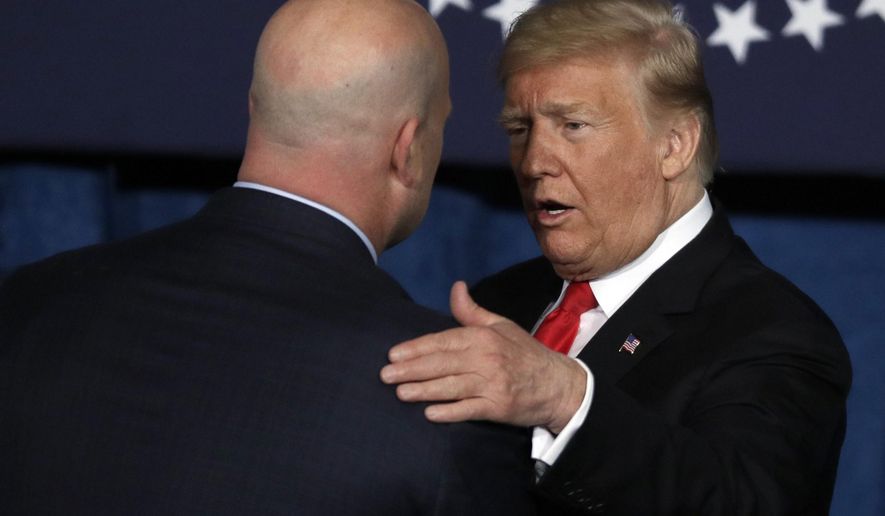The Justice Department asked a federal appeals court Monday to stop an attempt to get a look at the Trump Organization’s tax returns and other business data, saying the case is moving too fast and needs more arguments.
The new filings with the 4th U.S. District Court of Appeals come in a case challenging the president’s continued interests in his eponymous business empire, which the plaintiffs, the state of Maryland and the District of Columbia, say violates the Constitution’s Emoluments Clauses.
As part of the case, a federal judge two weeks ago approved a wide-ranging legal discovery plan that allowed Maryland and D.C. to subpoena the Trump Organization, the Trump International Hotel in Washington, and other parts of the president’s empire.
Mr. Trump’s own tax returns are not part of the subpoenas, but the information from the Trump Organization could give an unprecedented look at his finances nonetheless.
The Justice Department, in its new filing, said the subpoenas are “intrusive” and contradict the understanding of the country’s Founders, including George Washington, who did business with the government and also exported crops overseas while he was president.
Attorneys general in D.C. and Maryland said they’ll keep pushing.
“President Trump is going to extraordinary lengths to try to stop us from gathering information about how he is illegally profiting from the presidency,” said D.C. Attorney General Karl A. Racine.
In addition to the Trump Organization subpoenas, discovery requests were sent to the Treasury, Defense, Commerce and Agriculture departments.
When he became president, Mr. Trump did not divest from the Trump Organization but did turn day-to-day operations over to some of his children.
His political opponents say that means he still profits from business done at his hotels, including from foreign governments and U.S. entities looking to curry favor by patronizing his property.
That, they say, violates the Emoluments Clauses of the Constitution, which prohibit the president from profiting from a foreign government or from the U.S. government, beyond his salary.
Justice Department lawyers say U.S. District Judge Peter J. Messitte erred in ruling the subpoenas could be issued and compounded the error by refusing to certify his rulings to make them ripe for appeal.
• Stephen Dinan can be reached at sdinan@washingtontimes.com.




Please read our comment policy before commenting.